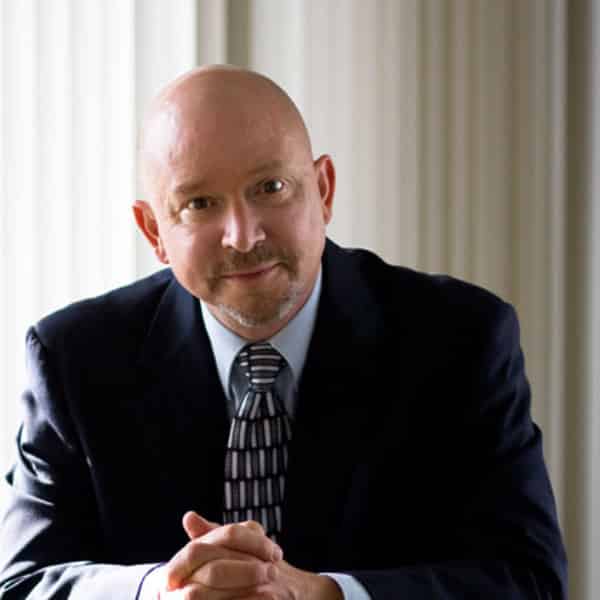One of the important aspects of speaking is solving a problem for the right audience.
So how do you choose the right audience and find the most pressing problem they are facing? There’s one man to answer these questions and he is here today: Mr. Terry Brock.
Terry began his now multiple decade speaking career based on solving problems dictated by market necessity. Through the years he has let the what the market “needed” drive his successful career.
MBA STUDENT TO PROFESSIONAL SPEAKER
His career began as an MBA student at Georgia State University, where he studied under Tom Stanley, author of The Millionaire Next Door. Terry learned skills that were new to the accounting community and found no one was teaching the skills he knew. His first engagement was less than stellar, but shows us that everyone has a beginning. Terry grew into this need and eventually became the premier instructors, working with top financial institutions and companies including the Federal Reserve Bank and Coca-Cola.
Following the market to find the problem you can solve has been Terry’s mindset through his career. It has proven to be difficult at times.¬† With the constant changes, the market has forced Terry to pivot often to solve a unique, necessary problem.¬† Speakers are really in the problem solving business. As a speaker you learn to talk about things that people say, “Yeah, we’re ready, willing and able to pay you to come and teach us that.”
“What you don’t want to do is become an expert in an area that people don’t care about. I often euphemistically say, if you’re an expert on tsetse flies from Ethiopia in the 15th century, well that’s real good, Scooter, but there’s not a lot of demand for that out there in the marketplace.”
Becoming an expert speaking virtually has become a necessity. Check out Terry’s thoughts on what makes or breaks you in successfully communicating via video:
4 Make or Breaks to Become a Solve Problems on Video:
- High Quality Camera
- External Microphone
- Band width
- Socially acceptable
Once you get these things right, a world of possibilities opens to take a message and become a communicator who solves problems across the world.
“I’ve done the thing in the past where every day is a different city and it really wears you out emotionally, physically, and, besides, it’s not a really good business model because it’s not leverageable. It’s not scalable.”
In a time when the need for networking and community is at an all time high, Terry shares some of his thoughts on an organization that has offered him support for over 30 years — the NSA. The one that doesn’t listen in on your phone calls.
THE GOOD NSA
The National Speakers Association is a group that started back in the ’70s and it consisted largely of just, frankly, white males that did mostly after-dinner speeches, and that was okay. That’s where the market was in the early, mid- seventies, but it has now evolved and changed so that it’s really much more communicators who solve problems. People who are trainers, people who are facilitators, or coaches, authors, speakers. But, speaking is the common denominator. Speaking can be a lonely business, especially in the beginning.
What the NSA Offers:
- Conventions
- Workshops
- Networking
- Community
Best piece of advise when going to a convention? Find a wingman that can introduce you! It’s about relationships. Building relationships, and providing value to others.
“Get involved in an association, and become the person that helps others. As you do that, it does come back to you. Not always from the same person, but somehow, what goes around does come around, and so, you want lots of good going around for you.”
You’ll hear from Mr. Terry Brock on those subjects and more on this edition of The Speaker Lab!
THE FINER DETAILS OF THIS SHOW:
- What is his connection to Thomas J. Stanley, author of The Millionaire Next Door?
- What it means to grow bigger ears as a speaker.
- How can you use social media to find what the market is looking for?
- How do you know which opportunities to focus on?
- What is a CSP and why do speakers need to be one?
- Do the most successful speakers do just one thing?
- How much of his business is virtual speaking gigs?
- Who is the National Speakers Association right for and how do you get the most out of it?
- And so much more!


